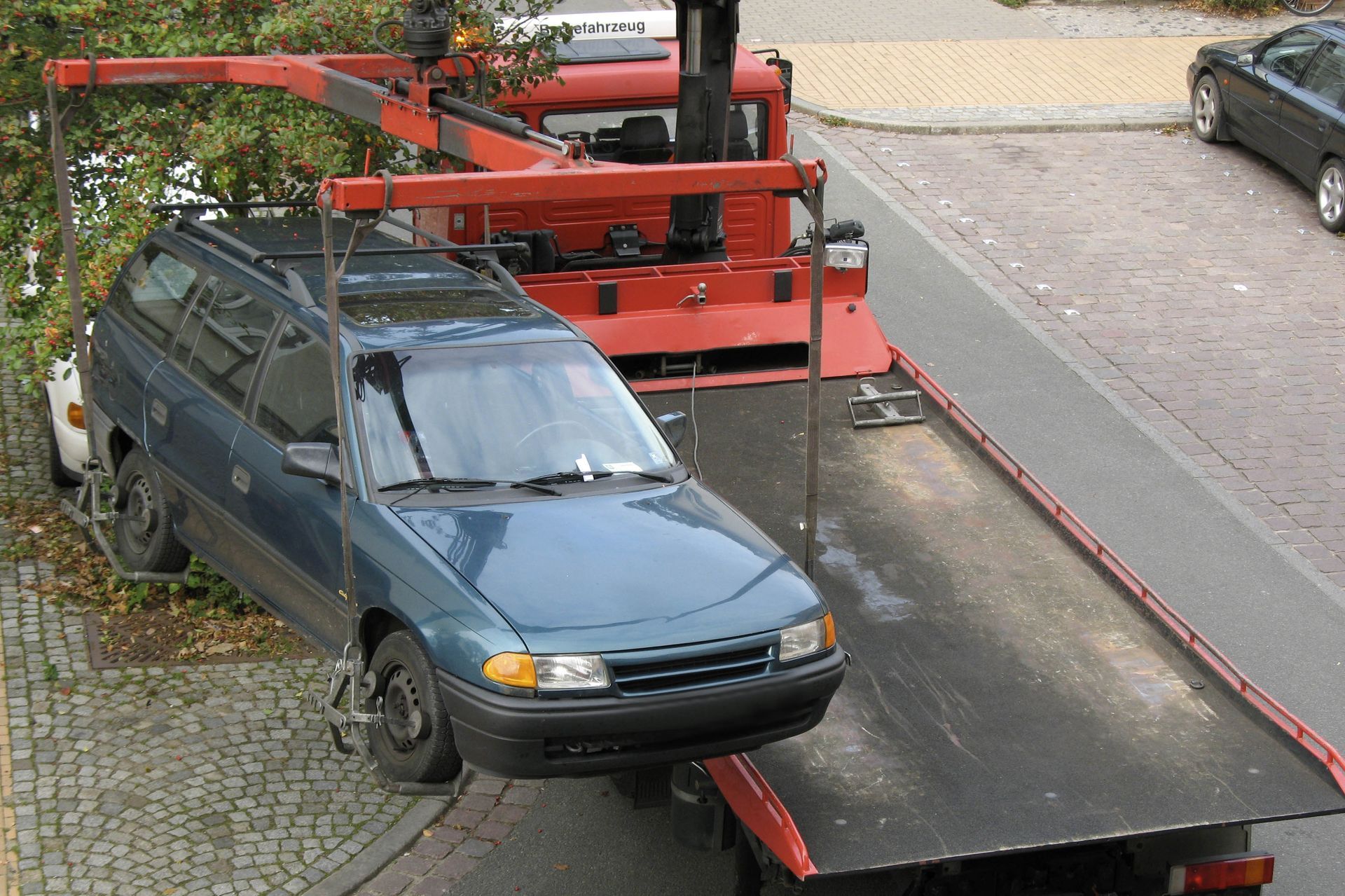November 11, 2025
Every year, millions of vehicles reach the end of their road life. While some may end up in landfills or sit idle in backyards, the vast majority can still serve a valuable purpose through recycling and repurposing. This process often begins with towing scrap—removing unusable vehicles from properties, roadsides, or impound lots to specialized recycling facilities. Once there, vehicles are dismantled and processed so that their parts and materials can be reused, reducing waste and conserving natural resources. In this article, we’ll explore what towing scrap is used for and why it plays a critical role in protecting the environment and promoting sustainability. Understanding this process helps homeowners, businesses, and entire communities make more eco-conscious decisions, turning what was once considered junk into valuable resources that can be used again in countless ways.
1. Reduces Landfill Waste and Environmental Impact
One of the most significant benefits of towing scrap is that it prevents old and abandoned vehicles from ending up in landfills. When vehicles sit unused, they can leak oil, coolant, and other hazardous fluids into the soil and groundwater, causing long-term environmental harm. Recycling scrap vehicles ensures that harmful materials are properly drained and disposed of in compliance with environmental regulations. This step minimizes pollution and promotes safer disposal practices. By relying on responsible towing scrap services, communities can reduce landfill waste and help maintain cleaner soil and water systems, contributing to a healthier planet.
2. Supports Metal Recycling and Resource Conservation
Vehicles contain large quantities of valuable metals such as steel, aluminum, and copper—all of which can be reused to manufacture new products. When a vehicle is collected through towing scrap, these metals are extracted, processed, and melted down for reuse in the automotive and construction industries. Recycling metal uses significantly less energy compared to mining and refining new ore, leading to lower greenhouse gas emissions. According to the Automotive Recyclers Association, approximately 86% of a vehicle’s material content is recycled, reused or used for energy recovery. This statistic highlights the enormous environmental value of properly handling scrap vehicles through efficient recycling programs.
3. Provides Parts for Reuse and Refurbishment
Not all components of a towed vehicle are destined for melting or shredding. Many parts, such as engines, transmissions, batteries, and alternators, can be refurbished and resold. When handled by a certified facility, towing scrap becomes a vital source of affordable auto parts for repair shops and vehicle owners. This not only reduces the demand for new manufacturing but also extends the lifespan of existing vehicles, making car ownership more sustainable. Through professional processing, functional parts are cleaned, tested, and resold, supporting both environmental conservation and the local economy.
4. Generates Energy from Non-Recyclable Materials
Even the materials that cannot be directly recycled still have value. Non-metallic components such as rubber, foam, and certain plastics can be used in energy recovery processes. When a facility handles towing scrap responsibly, these materials are separated and converted into energy through advanced thermal recovery systems. This process helps reduce dependence on fossil fuels while ensuring that as little of each vehicle as possible goes to waste. In this way, every stage of the towing scrap process contributes to more efficient and sustainable resource use.
5. Reduces Greenhouse Gas Emissions
Recycling and reusing materials from scrap vehicles directly impact greenhouse gas emissions. The production of new metals from raw materials requires substantial energy, which often comes from fossil fuel combustion. By reusing existing metals from towing scrap, recycling facilities help reduce the carbon footprint associated with vehicle manufacturing and industrial production. Additionally, because recycled metals can be processed at lower temperatures, this approach conserves energy while cutting down emissions. Supporting towing scrap initiatives is an easy yet impactful way for individuals and businesses to take part in the fight against climate change.
6. Strengthens the Circular Economy
Towing scrap is a vital part of the circular economy—a system designed to keep products, materials, and resources in use for as long as possible. Rather than producing, consuming, and disposing of materials, this model emphasizes reuse and recycling. Vehicles that are collected as scrap feed directly into this system, where their components are reintroduced into new manufacturing cycles. This not only minimizes waste but also reduces the need for raw material extraction. By participating in a professional towing scrap program, you’re supporting a sustainable economic structure that prioritizes environmental responsibility and long-term efficiency.
7. Creates Local Jobs and Economic Opportunities
The towing scrap industry supports a wide range of jobs, from tow truck drivers and mechanics to recycling plant operators and materials processors. Each vehicle that’s recycled requires careful dismantling, sorting, and documentation, all of which create employment opportunities. Additionally, the resale of reclaimed metals and refurbished auto parts contributes to local economies by lowering costs for manufacturers and consumers alike. By supporting ethical towing scrap businesses, communities not only protect the environment but also encourage economic growth and skilled labor development in the recycling sector.
8. Promotes Safe and Responsible Vehicle Disposal
Improper disposal of vehicles can pose significant environmental and safety risks. Fluids such as transmission oil, brake fluid, and antifreeze are toxic when released into the environment. A certified towing scrap service ensures that these hazardous materials are drained, collected, and recycled or disposed of safely. Tires, batteries, and electronic components are also processed according to environmental standards. This responsible handling protects both human health and ecosystems, ensuring that end-of-life vehicles are managed with care and accountability.
9. Encourages Sustainable Manufacturing Practices
Automakers increasingly rely on recycled metals and plastics to produce new vehicles, lowering manufacturing costs and environmental impact. When a vehicle enters the towing scrap process, its materials contribute to this sustainable production cycle. Using recycled materials reduces dependency on mining operations, which are often destructive to natural habitats. It also decreases transportation emissions by shortening the supply chain. As the automotive industry continues to embrace eco-friendly practices, towing scrap remains a cornerstone of sustainable innovation and resource management.
10. Helps Build Environmental Awareness Among Consumers
Perhaps one of the most overlooked benefits of towing scrap is the awareness it creates. When homeowners or businesses choose to recycle vehicles rather than abandon them, they take an active role in promoting environmental responsibility. This action sets an example for others and demonstrates how small individual efforts can contribute to large-scale change. Over time, these collective actions influence public attitudes toward recycling, waste reduction, and resource conservation. Partnering with a company that offers professional towing scrap services allows consumers to participate in this positive movement and contribute to a cleaner, greener future.
In conclusion, towing scrap is far more than a convenient way to remove unwanted vehicles—it’s an essential part of environmental preservation and sustainable industry. From conserving metal resources and reducing emissions to creating jobs and promoting responsible disposal, the benefits are wide-reaching. Each stage of the process demonstrates how something once viewed as waste can become a valuable asset with the right expertise and care. As global efforts toward sustainability grow stronger, responsible vehicle recycling will only become more important. If you’re looking to recycle your old or damaged vehicle responsibly, contact Sunrise Salvage & Transport today to learn how professional towing scrap services can help you protect the environment while reclaiming value from your vehicle and contributing to a cleaner, more sustainable world.






